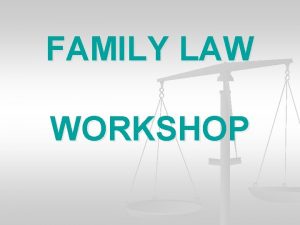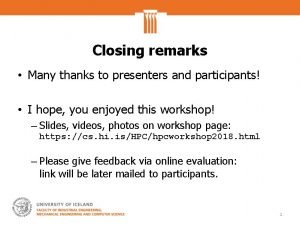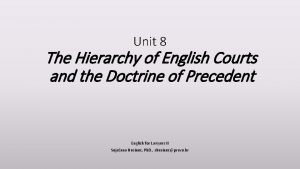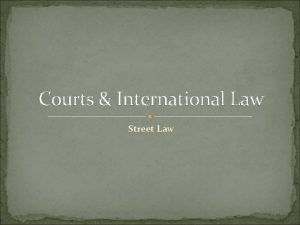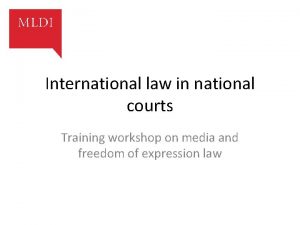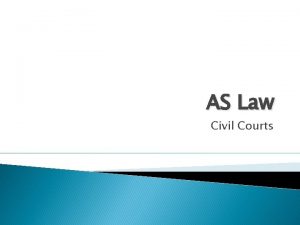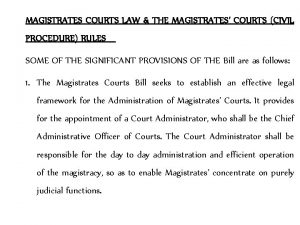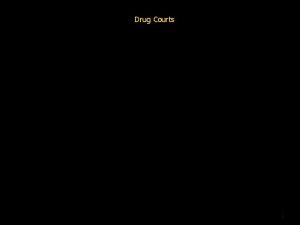International law in national courts Training workshop on








- Slides: 8

International law in national courts Training workshop on media and freedom of expression law

It has been very interesting to learn about the international legal standards for protecting freedom of expression. But what use are they in national courts?

Two types of national legal systems • Monist: international law is an integral part of the national legal system and can be applied directly. • Dualist: national and international systems are separate. International treaties only apply when they have been enacted into national law.

That is theory… … but the reality is more complicated. • What is the status of international law in the hierarchy of laws in monist countries? • Judges in “monist” countries may require legislation to apply an international norm. • Customary international law may often be applied in dualist countries, provided it does not conflict with national law.

What is the situation in your country? Is it “monist” or “dualist”?

• States are obliged to implement their international treaty obligations, whatever the nature of their own legal system – the principle of pacta sunt servanda. • But this may not help you if you are litigating in a national court.

Obstacles to using international standards in domestic courts • Courts may not allow international obligations to be directly invoked. • (The same applies, obviously, to case law from other jurisdictions. ) • Judges may be ignorant of international law.

It is usually a poor strategy to tell judges that they should apply international (or comparative) standards. It may be better to invoke international or comparative case law as an aid to interpreting national laws protecting freedom of expression. What is your experience in litigating freedom of expression cases in your national courts?
